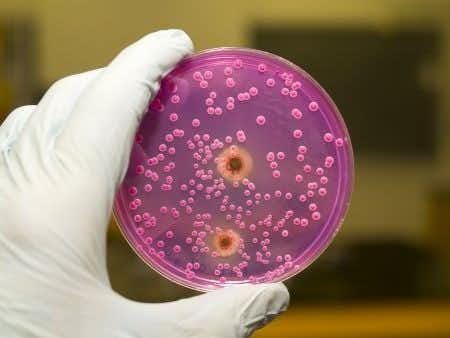This case involves a scientist who invented an inoculum containing multiple strains of nitrogen-fixing bacteria. This type of microorganism was created by the scientist to metabolize hydrocarbons. The scientist invented the microorganism because the biochemical pathways responsible for this type of metabolism did not exist naturally. The invention was based on artificially introducing the pathways for this type of metabolism to the bacteria. The bacteria was invented to be used for consuming petroleum spills. The bacteria was created because it was capable of breaking down multiple components of crude oil. This property was not possessed by any known naturally occurring bacteria. When the inventor tried to patent the bacteria, his application was rejected by the patent examiner. An expert in intellectual property (IP) was sought to opine on the issue.
Question(s) For Expert Witness
Can an inventor obtain a patent for a bacteria under US patent laws about patentable subject matter?
Expert Witness Response
The patent examiner in this case probably rejected the patent application because an inventor usually cannot patent a living thing. Under the statutory requirements for patentability as set out in 35 U.S.C. § 101, an inventor may patent a new and useful process, a machine, an article of manufacture or a composition of matter, or any new and useful improvement of such a process or matter. This law has usually been interpreted as having a very wide scope and has been interpreted to apply to cases where an inventor creates a non-naturally occurring manufacture or composition of matter or a product of human ingenuity that has a distinctive name, character, and use. In deciding whether to accept a patent application for a microorganism, the US Patent and Trademark Office will consider whether this type of invention is derived from nature and whether it has been modified by the inventor into something new, useful, and unobvious. In general, the inventor in this case should be able to patent the bacteria because it is man-made and is a genetically engineered bacteria. Under 35 U.S.C. § 101, an inventor is allowed to patent a non-naturally occurring organism because it is an article of manufacture and is also a composition of matter. Because the invention in this case is a product of human ingenuity, it is probably patentable matter under US patent law.
About the author
Michael Talve, CEO
Michael Talve stands at the forefront of legal innovation as the CEO and Managing Director of Expert Institute. Under his leadership, the Expert Institute has established itself as a vital player in the legal technology arena, revolutionizing how lawyers connect with world-class experts and access advanced legal technology. Michael's role involves not only steering the company's strategic direction but also ensuring the delivery of unparalleled intelligence and cutting-edge solutions to legal professionals. His work at Expert Institute has been instrumental in enhancing the capabilities of attorneys in case preparation and execution, making a significant impact on the legal industry's approach to expert consultation and technological integration. Michael's vision and execution have positioned the Expert Institute as a key facilitator in the intersection of law and technology.



